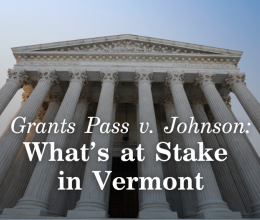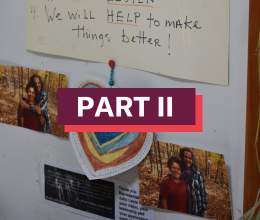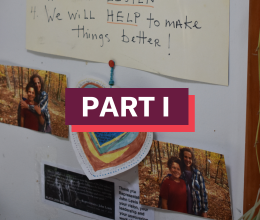
Falko Schilling is the advocacy director for the ACLU of Vermont. Read more about this topic in a May 24, 2022 story in VTDigger.
This legislative session impacted Vermonters’ civil liberties in significant ways, both good and bad. Specifically, while Vermont continued to adopt smarter criminal justice policies this year, we have also seen a shockingly inadequate response to the opioid crisis, and a failure to enact any meaningful police reforms.
The people of Vermont want to turn the page on the failed “tough on crime” era of mass incarceration, and they want their leaders to prioritize people and communities over prisons and policing. Luckily, policymakers have been listening. Since March 2020, Vermont’s prison population has been cut from 1,656 down to 1,313– a twenty percent drop in just two years and a forty percent reduction from fifteen years ago.
Some of this progress can be attributed to the “Justice Reinvestment” process (JRI), championed by legislative leaders like Senator Dick Sears, which utilizes data analysis and stakeholder engagement to identify problems and achieve better outcomes.
The JRI process revealed glaring racial disparities in state drug prosecutions. It also showed that Vermont has had one of the most punitive community supervision systems in the country, with revocations from parole and furlough driving nearly eighty percent of new prison admissions. By reforming that system, revocations from furlough have been cut dramatically, from 1,404 in 2018 to just 268 in 2021.
Legislators should be commended for this progress, and for creating a new system of data collection and analysis to address systemic racism in our legal system and enable more “smart justice” reforms going forward. These investments will continue to pay off in terms of human rights, public safety, and savings to taxpayers.
There were also, however, plenty of missed opportunities and causes for concern. The Senate did not advance some key sentencing reforms passed by the House. And the legislature has not abandoned construction plans that would expand our prison system, despite a broad consensus that we should instead be investing in community-based models and support programs.
We also witnessed a clearly insufficient response to the opioid crisis at a time when Vermont communities are experiencing record overdose deaths. The human toll and cruelty of the failed war on drugs becomes more apparent every year, and while some limited drug policy reforms were advanced this year, legislators have yet to act on more robust and effective solutions that are available. Meanwhile, Governor Scott vetoed a bill that would have helped to reform our drug laws and address racist disparities in sentencing.
Another glaring disappointment was the failure to enact any meaningful police reforms this session. More than ninety percent of Vermonters say they want police to be held accountable when they violate someone’s rights and, in 2020, the legislature reformed Vermont’s use-of-force laws, following widespread protests against police brutality and impunity.
But far more remains to be done, and at the outset of this session there was cause for optimism. Legislative leaders, to their great credit, introduced a bill to end qualified immunity – an idea supported by three in four Vermonters – to hold police accountable for civil rights violations.
Other bills sought to address overpolicing and racial profiling via traffic stops; create a database of untrustworthy police; prevent coercive interrogations that lead to false confessions; and limit “no-knock raids” that have resulted in preventable deaths in Vermont. These and other reforms are urgently needed to remedy the continuing lack of transparency, oversight, and accountability in Vermont police agencies.
And yet, none of these proposals will be signed into law this year. Governor Scott opposed ending qualified immunity, and every substantive police reform bill introduced this biennium was opposed, gutted, or defeated by law enforcement leaders and defenders of the status quo.
To be clear, many legislators championed these reforms tirelessly. Whether their colleagues balked because they actually believed the cynical and misleading testimony of state law enforcement officials, or because they were afraid of a police backlash, the end result was that, two short years after we as a state recommitted to eradicating systemic racism and reimagining public safety, Governor Scott and Vermont’s legislature in 2022 took few meaningful actions to back up those commitments.
By effectively giving police veto authority over public safety reform, the governor and the legislature are doing a great disservice to the majority of Vermonters who want to see real change.
Going forward, the ACLU and our partners will redouble our efforts to convince more state leaders to heed the calls of their constituents and reimagine public safety in Vermont. And we will continue working to hold police accountable in the courts and in our communities. In the meantime, those communities will be worse off as a result of police-led opposition and legislative inaction.
*A version of this post was published as an opinion editorial in Caledonian Record and other outlets on May 20, 2022.


